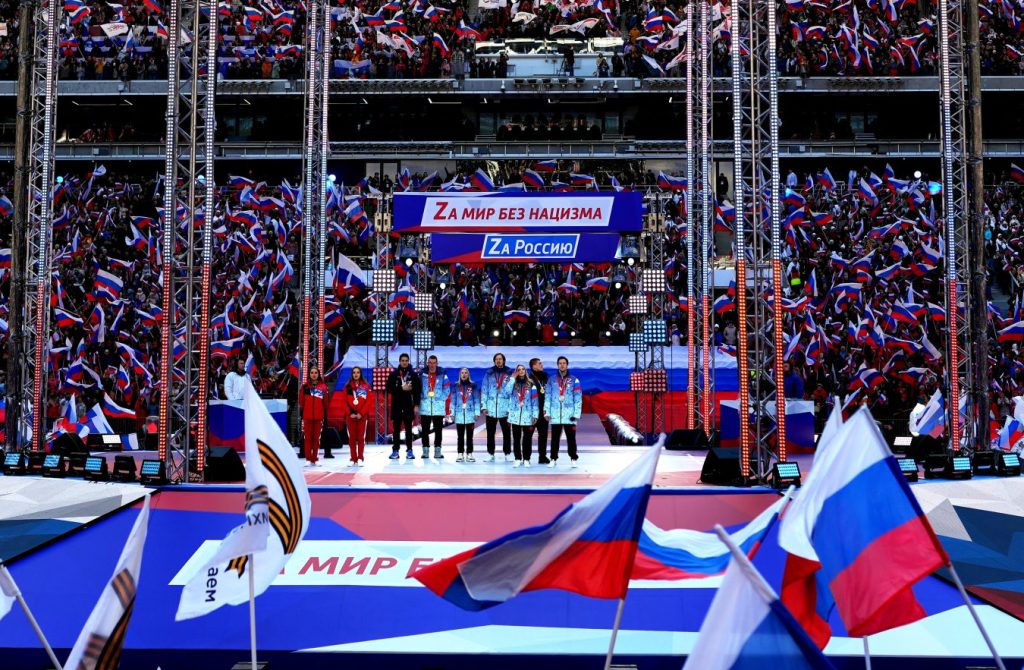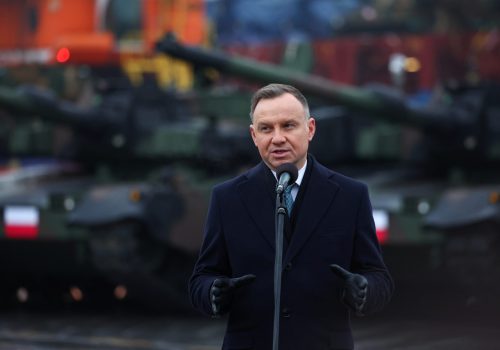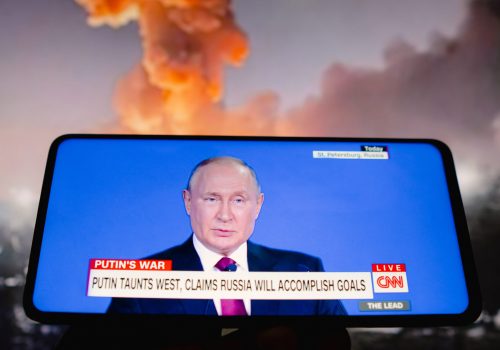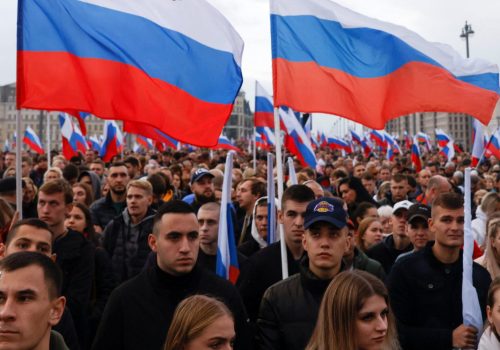On January 25, news broke that the International Olympic Committee would allow Russian athletes to compete at the 2024 Summer Olympic Games in Paris under a neutral flag. The decision has sparked controversy and revived a longstanding debate over the separation of sport from politics.
Many critics slammed the IOC decision as a step toward normalizing relations with Russia despite Moscow’s ongoing genocidal invasion of Ukraine. “Ukrainian decathlete Volodymyr Androshchuk will not be representing his country at the Paris Olympics because he was just killed by the Russian armed forces. In other news, the IOC announces that Russian athletes are welcome in Paris,” tweeted Yale historian Timothy Snyder on February 1.
Some went even further. A joint statement from a coalition of Ukrainian athletes and the Global Athlete movement drew attention to Russia’s record of exploiting the Olympics for propaganda purposes. “Russia used the Sochi Olympics to bolster its international standing before annexing Crimea,” the statement highlighted. “Russia has proven time and time again that athletes are an integral part of its foreign policy. If Russian athletes are allowed to return to international competition, the Russian state will again use athletes to bolster the war effort and distract from the atrocities in Ukraine.”
Stay updated
As the world watches the Russian invasion of Ukraine unfold, UkraineAlert delivers the best Atlantic Council expert insight and analysis on Ukraine twice a week directly to your inbox.
Anger over the IOC decision reflects global outrage at the brutality of the invasion launched by Russia in February 2022. As the war in Ukraine approaches the one-year mark, the list of Russian atrocities continues to grow. Thousands of Ukrainian civilians have been killed and more than ten million people have been displaced by the fighting. Dozens of towns and cities have been reduced to rubble by Vladimir Putin’s advancing army, while regions of Ukraine occupied by Russia have reportedly been subjected to an array of war crimes including mass executions, torture, sexual violence, and forced deportations.
With Russia showing no signs of abandoning its efforts to extinguish Ukrainian independence and force Ukrainians back into the Kremlin orbit, there appears to be little scope for a negotiated settlement that would lead to a sustainable peace. Instead, it is becoming increasingly clear that the only way to end the war is on the battlefield. Unless Russia is decisively defeated, the war will continue.
As the Russian invasion enters its second year, it is imperative to maintain support for Ukraine. If the international community starts taking steps to normalize relations with Russia, this could set a dangerous precedent. The Kremlin has long predicted that Western leaders will eventually lose interest in Ukraine and seek to resume cooperation with Russia. Allowing Russian athletes to return to the Olympic Games would send a strong signal that such expectations are entirely realistic. Other authoritarian rulers would also note the West’s apparently short attention span and draw the obvious conclusions for their own aggressive foreign policies.
Opponents of the IOC stance argue that allowing an unrepentant Russia to return to the Olympics is particularly foolish given the long history of failed attempts to appease the Kremlin. Following the 2008 invasion of Georgia, the United States initiated a notorious “reset” of relations with Russia. Meanwhile, European leaders continued to advocate policies of appeasement and pursued deepening economic ties with Moscow right up until the full-scale invasion of Ukraine in February 2022.
Ukrainian officials and their colleagues in the Baltic states, Poland, and other former Warsaw Pact countries advised against these policies for many years but were consistently ignored or accused of exaggerating the Russian threat. With the largest European conflict since World War II now raging in Ukraine, such accusations are no longer valid. If the Olympic authorities choose to ignore the war and insist on the return of Russian athletes, it will strike a powerful blow against international unity in support of Ukraine.
Eurasia Center events

Numerous individual athletes and national sporting associations have already voiced their concerns over the possible return of Russian athletes to Olympic competition. Many also continue to stand with Ukraine. It is important to note that the IOC has demonstrated its support, establishing a solidarity fund to help the Ukrainian Olympic community that had raised $7.5 million by summer 2022.
“Many members of the Olympic community are continuing to make huge efforts to support the Ukrainian Olympic community,” an IOC spokesperson commented recently. “These efforts take the form not just of financial aid but also logistical support and ensuring Ukrainian athletes can continue to take part in competitions by providing travel support, training facilities, accommodation, equipment, and uniforms.”
Support for Ukraine has come from many of the world’s top sporting brands. In the United Kingdom, the English Premier League dedicated one week’s matches during the 2021/2022 season to the people of Ukraine. Numerous individual English football clubs including Leicester City, Leeds United, and West Ham United organized charity events and donations for Ukraine. Across Europe, football clubs have played charity games against Ukrainian teams Dynamo Kyiv and Shakhtar Donetsk in order to raise money for Ukrainian causes.
In the world of tennis, top players including Rafael Nadal participated in a charity competition ahead of the US Open. “I’m incredibly proud of the way we were able to use the global platform of the US Open to increase the worldwide tennis community’s support for the Ukrainian people,” USTA Chairman of the Board and President Mike McNulty said on the US Open website.
The support for Ukraine demonstrated by members of the international sporting community is meaningful. However, if Russian athletes are given the green light to participate at the 2024 Paris Olympics, this will send a clear message that the international community is no longer fully committed to opposing the invasion of Ukraine. That would be catastrophic for the Ukrainian people and would also have dire consequences for the future of European security.
Mark Temnycky is a nonresident fellow at the Atlantic Council’s Eurasia Center and an accredited freelance journalist covering Eastern Europe.
Further reading
The views expressed in UkraineAlert are solely those of the authors and do not necessarily reflect the views of the Atlantic Council, its staff, or its supporters.

The Eurasia Center’s mission is to enhance transatlantic cooperation in promoting stability, democratic values and prosperity in Eurasia, from Eastern Europe and Turkey in the West to the Caucasus, Russia and Central Asia in the East.
Follow us on social media
and support our work
Image: Russian Olympic athletes attend a pro-war rally at Luzhniki Stadium in Moscow, Russia. March 18, 2022. (RIA Novosti Host Photo Agency via REUTERS)




